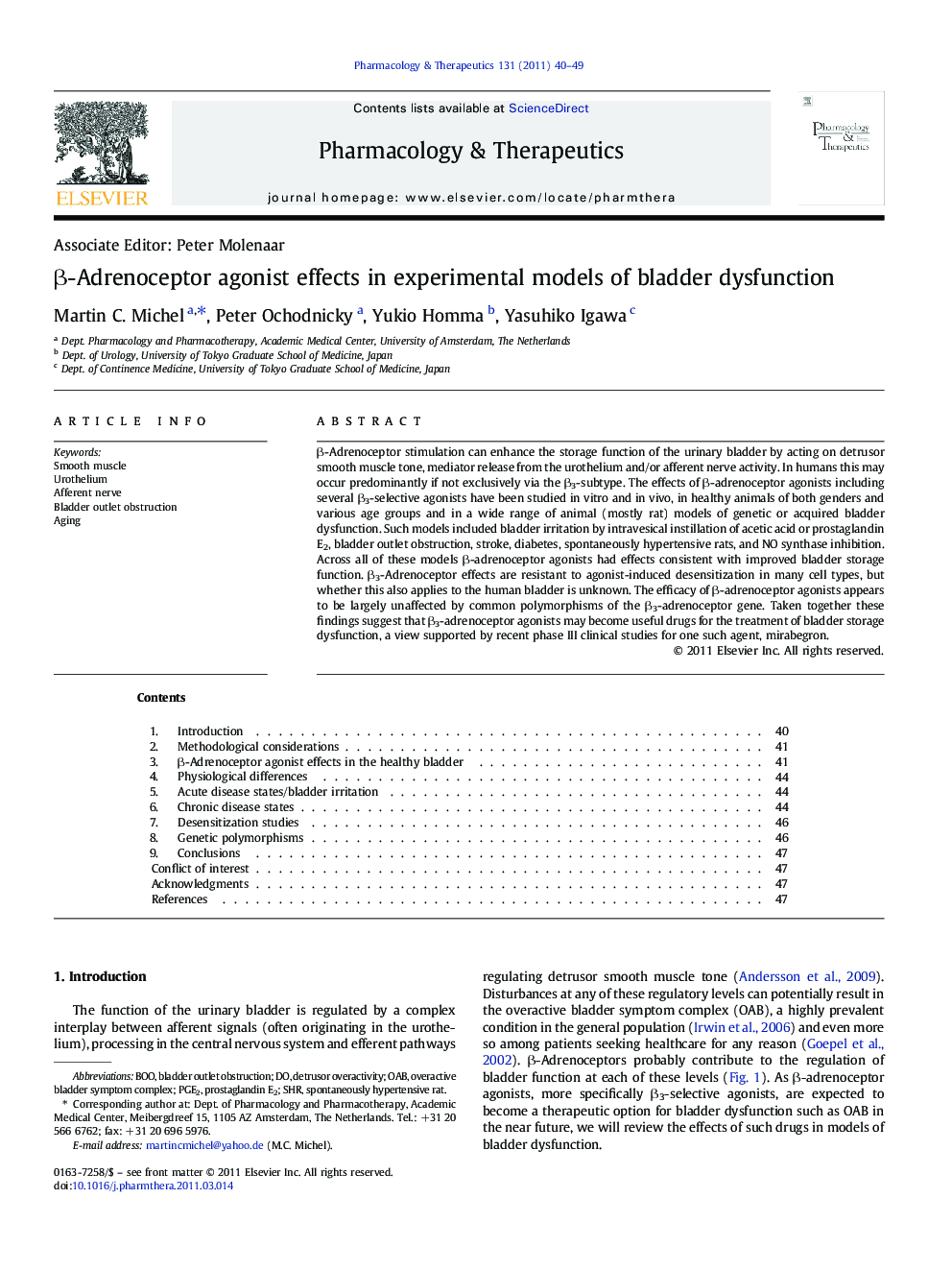| Article ID | Journal | Published Year | Pages | File Type |
|---|---|---|---|---|
| 5844067 | Pharmacology & Therapeutics | 2011 | 10 Pages |
β-Adrenoceptor stimulation can enhance the storage function of the urinary bladder by acting on detrusor smooth muscle tone, mediator release from the urothelium and/or afferent nerve activity. In humans this may occur predominantly if not exclusively via the β3-subtype. The effects of β-adrenoceptor agonists including several β3-selective agonists have been studied in vitro and in vivo, in healthy animals of both genders and various age groups and in a wide range of animal (mostly rat) models of genetic or acquired bladder dysfunction. Such models included bladder irritation by intravesical instillation of acetic acid or prostaglandin E2, bladder outlet obstruction, stroke, diabetes, spontaneously hypertensive rats, and NO synthase inhibition. Across all of these models β-adrenoceptor agonists had effects consistent with improved bladder storage function. β3-Adrenoceptor effects are resistant to agonist-induced desensitization in many cell types, but whether this also applies to the human bladder is unknown. The efficacy of β-adrenoceptor agonists appears to be largely unaffected by common polymorphisms of the β3-adrenoceptor gene. Taken together these findings suggest that β3-adrenoceptor agonists may become useful drugs for the treatment of bladder storage dysfunction, a view supported by recent phase III clinical studies for one such agent, mirabegron.
